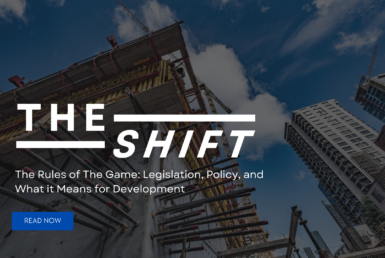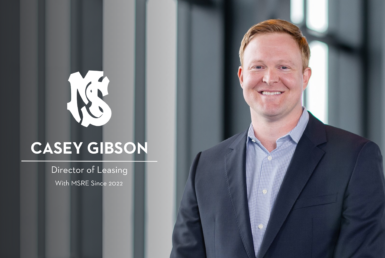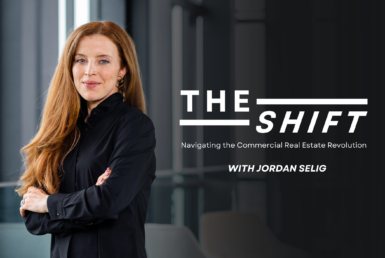“Amazon in the City” Panel Q&A With Jordan Selig

Jordan Selig, Martin Selig Real Estate’s managing director, was recently featured on Georgetown University’s John Carroll Weekend “Amazon in the City” panel. During this panel, Jordan and a few other key players in Seattle real estate and development discussed how Amazon’s rapid growth has affected Seattle. With a new headquarters in the works for the e-commerce giant, panelists shared some words of wisdom to the residents of the company’s next flagship city.
After Jordan discussed these issues with other experts in our city, we asked her to how Amazon and other large tech companies have affected Seattle in terms of economic growth, infrastructure, and more. Here’s what she had to say:
What are some of the pros and cons of having such a rapidly growing tech sector and job-growth boom in Seattle?
The major pro is that the economy grows with every new tech company that opens up an office in Seattle. The major con is that housing prices have increased rapidly, forcing many people out of the city and into the outskirts. Another con is traffic, but Seattle is on its way to finding solutions to that, and self-driving cars will also help, eventually.
What can Seattle teach us about the relationship between rapidly growing corporations and their host communities?
Seattle can teach us that when a city’s economy grows rapidly, its infrastructure has to keep up. The private and the public sector also need to keep lines of communication open in order to be able to respond effectively to one another.
Should large companies make an effort to support the communities they live in? If so, in what ways?
Definitely, because if they do so, it will also serve them in the long run. When large corporations support their communities, they’re helping their employees — everyone has a life inside and outside of work, after all.
How this support looks will vary from company to company and from community to community, but I’d say that ensuring there’s affordable housing is a good place to start. Volunteering is another good starting point, whether it’s picking up trash in nearby parks, working at food banks, funding the creation of a homeless shelter, or actively participating in dialogue regarding zoning and transportation.
How do you foresee Amazon and other large companies continuing to change Seattle in the future?
I see the economic basis of Seattle diversifying far beyond Amazon. Facebook, Google, and Tableau are a few prime examples of large corporations that currently have a big impact on Seattle. They chose to establish a large presence here for good reasons. The quality of life we enjoy in Seattle and the cost of living here are more favorable than in most other major American cities.
As time goes on, we’ll see Seattle’s infrastructure catching up with its economic and population growth, with more medical and childcare facilities, more people taking advantage of public transportation, and more acceptance of urban living as a viable option — not just for singles, but for couples and families as well. We’ve seen minor rezoning in a few select areas already, but it will become more dramatic and eventually will cover a larger area.
Additionally, the Waterfront Project is going to hugely impact Seattle, specifically the downtown core and the tourism industry. The light rail will also have a big effect, making it feasible for people to live in the suburbs and commute to work via train. Only time will tell what kind of difference self-driving cars will make. One thing’s for sure: They’re on their way, and in a decade’s time, we won’t see people in Seattle behind the wheel of a car.
To keep up with the latest updates from Martin Selig Real Estate, stay in touch on LinkedIn. To hear more from Jordan Selig on Seattle commercial real estate, consider attending Bisnow’s Seattle Construction and Development 2018 panel on managing risk, living with high costs, and retaining identity, where she will be a panelist!




